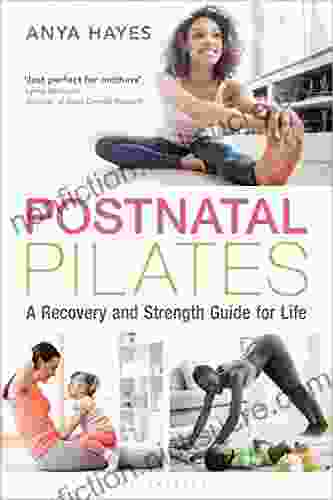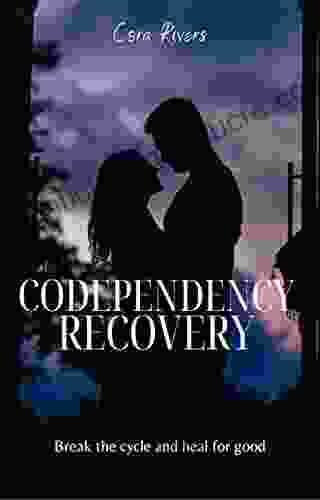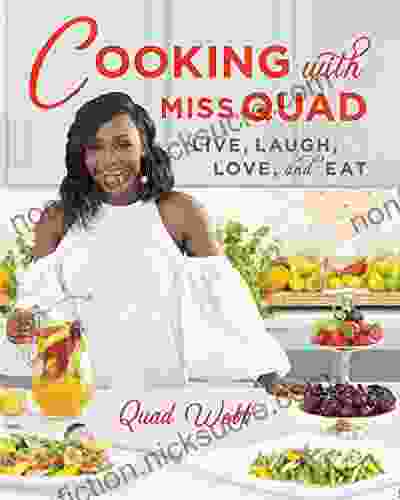Spatial Sense Makes Math Sense: Understanding the Connection Between Math and Spatial Reasoning

Have you ever wondered why some people seem to have a natural ability for math, while others struggle? The answer may lie in spatial sense, a cognitive ability that involves understanding and manipulating spatial relationships. Research has shown that students with strong spatial skills tend to perform better in math, particularly in areas such as geometry, measurement, and fractions.
So what is spatial sense, exactly? It is the ability to perceive, reason, and remember the spatial relationships between objects and oneself. It involves being able to mentally rotate and manipulate objects, as well as to understand the relationships between different parts of a whole. Spatial sense is also important for everyday activities such as navigation, driving, and reading maps.
5 out of 5
| Language | : | English |
| File size | : | 7317 KB |
| Text-to-Speech | : | Enabled |
| Screen Reader | : | Supported |
| Enhanced typesetting | : | Enabled |
| Word Wise | : | Enabled |
| Print length | : | 172 pages |
There are a number of different ways to develop spatial sense. Some of the most effective activities include:
- Playing with blocks and other construction toys
- Drawing and sketching
- Solving puzzles
- Playing sports
- Dancing
Parents and educators can also help children develop their spatial sense by providing them with opportunities to engage in these types of activities. For example, you can encourage your child to play with blocks, build with Legos, or solve puzzles. You can also ask them questions about the spatial relationships between objects, such as "Which block is on top of the red block?" or "Which way is the car facing?"
By providing children with opportunities to develop their spatial sense, we can help them succeed in math and other areas of life.
The Benefits of Spatial Sense for Math
There are a number of benefits to developing spatial sense, including:
- Improved math performance: As mentioned above, research has shown that students with strong spatial skills tend to perform better in math. This is likely because spatial sense is involved in many different math concepts, such as geometry, measurement, and fractions.
- Enhanced problem-solving skills: Spatial sense is also important for problem-solving, as it allows us to visualize and manipulate objects in our minds. This can be helpful for solving problems in a variety of areas, such as math, science, and engineering.
- Increased creativity: Spatial sense is also important for creativity, as it allows us to imagine and visualize new things. This can be helpful for artists, designers, and anyone else who needs to come up with new ideas.
How to Develop Spatial Sense
There are a number of different ways to develop spatial sense. Some of the most effective activities include:
- Play with blocks and other construction toys: Blocks and other construction toys are a great way to develop spatial sense. They allow children to explore different shapes and sizes, and to learn how to put them together to create new structures. Playing with blocks can also help children develop their fine motor skills and their problem-solving abilities.
- Draw and sketch: Drawing and sketching are other great ways to develop spatial sense. They allow children to explore different perspectives and to learn how to represent objects in two dimensions. Drawing and sketching can also help children develop their creativity and their hand-eye coordination.
- Solve puzzles: Puzzles are a fun and challenging way to develop spatial sense. They require children to think critically about the relationships between different shapes and sizes, and to find solutions to problems. Solving puzzles can also help children develop their problem-solving skills and their perseverance.
- Play sports: Sports are a great way to develop spatial sense. They require children to move their bodies in different directions and to interact with other players in a variety of ways. Playing sports can also help children develop their coordination, their balance, and their teamwork skills.
- Dance: Dance is another great way to develop spatial sense. It requires children to move their bodies in different directions and to coordinate their movements with others. Dancing can also help children develop their sense of rhythm, their flexibility, and their self-expression.
Spatial sense is a cognitive ability that involves understanding and manipulating spatial relationships. It is important for a variety of reasons, including math performance, problem-solving, and creativity. There are a number of different ways to develop spatial sense, including playing with blocks, drawing and sketching, solving puzzles, playing sports, and dancing. By providing children with opportunities to develop their spatial sense, we can help them succeed in math and other areas of life.
5 out of 5
| Language | : | English |
| File size | : | 7317 KB |
| Text-to-Speech | : | Enabled |
| Screen Reader | : | Supported |
| Enhanced typesetting | : | Enabled |
| Word Wise | : | Enabled |
| Print length | : | 172 pages |
Do you want to contribute by writing guest posts on this blog?
Please contact us and send us a resume of previous articles that you have written.
 Fiction
Fiction Non Fiction
Non Fiction Romance
Romance Mystery
Mystery Thriller
Thriller SciFi
SciFi Fantasy
Fantasy Horror
Horror Biography
Biography Selfhelp
Selfhelp Business
Business History
History Classics
Classics Poetry
Poetry Childrens
Childrens Young Adult
Young Adult Educational
Educational Cooking
Cooking Travel
Travel Lifestyle
Lifestyle Spirituality
Spirituality Health
Health Fitness
Fitness Technology
Technology Science
Science Arts
Arts Crafts
Crafts DIY
DIY Gardening
Gardening Petcare
Petcare Marlo Gottfurcht Longstreet
Marlo Gottfurcht Longstreet Debbie M Schell
Debbie M Schell Stefanie Reinhold
Stefanie Reinhold Shelly Crane
Shelly Crane Jason Frye
Jason Frye Penny Simkin
Penny Simkin Jessica Beck
Jessica Beck Sarah Bennett
Sarah Bennett Malcolm Pearson
Malcolm Pearson Miles Howard
Miles Howard Patrick Vinton Kirch
Patrick Vinton Kirch Tessa Broad
Tessa Broad Mohamed F El Hewie
Mohamed F El Hewie David Miller
David Miller Dodie Smith
Dodie Smith Patricia Burroughs
Patricia Burroughs Ross Bentley
Ross Bentley Daniel Loxton
Daniel Loxton Conrad Fischer
Conrad Fischer Michael Lempert
Michael Lempert John E Phillips
John E Phillips Grace Mccready
Grace Mccready James F Clapp
James F Clapp Jens Meyer
Jens Meyer Mindy Mcginnis
Mindy Mcginnis Helen Barry Siragusa
Helen Barry Siragusa Dave Canterbury
Dave Canterbury Stephanie Greer
Stephanie Greer Stephanie Dueger
Stephanie Dueger Maggie Oakes
Maggie Oakes Warrior Primal
Warrior Primal Judy Bartkowiak
Judy Bartkowiak Greg Stucky
Greg Stucky Brother Nero
Brother Nero Cheryl Kimball
Cheryl Kimball Dermot Moran
Dermot Moran Karl Polanyi
Karl Polanyi John Weir
John Weir Mark Golds
Mark Golds Megan Miller
Megan Miller Edward Bulwer Lytton
Edward Bulwer Lytton Christopher Heaney
Christopher Heaney David Goudsward
David Goudsward Rachel Dickinson
Rachel Dickinson Marlene Laruelle
Marlene Laruelle Glinda Porter
Glinda Porter Sam Chenery Morris
Sam Chenery Morris Iman Hami
Iman Hami Dr Amanda Kemp
Dr Amanda Kemp Print Replica Kindle Edition
Print Replica Kindle Edition Nicole Conway
Nicole Conway The Princeton Review
The Princeton Review Richard Berry
Richard Berry Katy Madison
Katy Madison Kevin Neary
Kevin Neary Jay Mccullough
Jay Mccullough Erika Buenaflor M A J D
Erika Buenaflor M A J D Kati Kleber
Kati Kleber Albert Gallatin Mackey
Albert Gallatin Mackey Scott H Sicherer
Scott H Sicherer Dan Flores
Dan Flores Joanna Grace
Joanna Grace Patrick Sweeney
Patrick Sweeney Ken Palmer
Ken Palmer Elizabeth Grosz
Elizabeth Grosz Hal Herzog
Hal Herzog Drew Clifton
Drew Clifton Mark Bacera
Mark Bacera Georg Rauch
Georg Rauch Becky Kopitzke
Becky Kopitzke Marie Louise
Marie Louise Naomi Shihab Nye
Naomi Shihab Nye Susan K Grove
Susan K Grove Simon Monk
Simon Monk Chrissie Wellington
Chrissie Wellington Tamara Ferguson
Tamara Ferguson Cgp Books
Cgp Books Nancy Carter Crump
Nancy Carter Crump Trevor Thomas
Trevor Thomas Stephen J Bavolek
Stephen J Bavolek Stuart Mcrobert
Stuart Mcrobert Samuel T Heart
Samuel T Heart Jaime Aron
Jaime Aron Gareth Thomas
Gareth Thomas Summary Genie
Summary Genie Preston Peet
Preston Peet Creek Stewart
Creek Stewart Lynn Melnick
Lynn Melnick Keith Ryan Cartwright
Keith Ryan Cartwright Zoe Mckey
Zoe Mckey Evy Poumpouras
Evy Poumpouras Richard Louv
Richard Louv Ronni Lundy
Ronni Lundy Delia Owens
Delia Owens Chris Crutcher
Chris Crutcher Christopher Ives
Christopher Ives Len Mcdougall
Len Mcdougall Peterson S
Peterson S John Trent
John Trent John Allen
John Allen Jennifer M Sparks
Jennifer M Sparks Jon Emmett
Jon Emmett Charlie Walker
Charlie Walker Rui Zhi Dong
Rui Zhi Dong Ross Campbell
Ross Campbell Law School Admission Council
Law School Admission Council Christopher Scott
Christopher Scott Susan Campbell Bartoletti
Susan Campbell Bartoletti Suzy Favor Hamilton
Suzy Favor Hamilton Joshua Berman
Joshua Berman Dave Bergman
Dave Bergman Richard S Westfall
Richard S Westfall Theodore Gray
Theodore Gray Alejandro Sequera
Alejandro Sequera Stephen Brennan
Stephen Brennan Nick Muxlow
Nick Muxlow Ryan Robert
Ryan Robert Victoria E Kress
Victoria E Kress Baz Thompson
Baz Thompson Johannes Krause
Johannes Krause Chris Mccormack
Chris Mccormack Kevin C Kelleher Md Md
Kevin C Kelleher Md Md Tricia Levenseller
Tricia Levenseller Paul Nash
Paul Nash Dave Wilson
Dave Wilson Jim Al Khalili
Jim Al Khalili Greg Wyshynski
Greg Wyshynski Frank Runles
Frank Runles Kindle Edition
Kindle Edition Richard A Horsley
Richard A Horsley John Galeano
John Galeano Mark Hansen
Mark Hansen Lindsay Helm
Lindsay Helm Curtis Retherford
Curtis Retherford Jim Parks
Jim Parks Maria Del Russo
Maria Del Russo Leland Chant
Leland Chant Laurie Seale
Laurie Seale Christian Bates
Christian Bates Pavla Kesslerova
Pavla Kesslerova Louise Greenspan
Louise Greenspan Roald Amundsen
Roald Amundsen Don Casey
Don Casey Christopher Clarey
Christopher Clarey Robert W Sussman
Robert W Sussman Michael J Bennett
Michael J Bennett Keith Gave
Keith Gave Tahir Shah
Tahir Shah Nathan Fox
Nathan Fox Cecil Harris
Cecil Harris Mariamelys Yanez
Mariamelys Yanez Mike White
Mike White Mary Catherine Bateson
Mary Catherine Bateson G Bruce Knecht
G Bruce Knecht Simone Abram
Simone Abram Jennifer Mind
Jennifer Mind Melinda Tankard Reist
Melinda Tankard Reist Klaus Dodds
Klaus Dodds Martin E P Seligman
Martin E P Seligman Irene Mchenry
Irene Mchenry Heather A Smith
Heather A Smith Jacques Steinberg
Jacques Steinberg Lefty Kreh
Lefty Kreh Bill Patton
Bill Patton Tara Isabella Burton
Tara Isabella Burton Gish Jen
Gish Jen P C Cast
P C Cast Haylie Duff
Haylie Duff Susan Brink
Susan Brink Kathryn Harkup
Kathryn Harkup Grant Andrews
Grant Andrews James Morgan Ayres
James Morgan Ayres Doug Gaskill
Doug Gaskill Paul Bellow
Paul Bellow Dan Reeder
Dan Reeder Karen Horney
Karen Horney Peter Koning
Peter Koning Steven D Fleming
Steven D Fleming Scott O Morton
Scott O Morton Tony J Bell
Tony J Bell Cory Mccartney
Cory Mccartney Isle Osaki
Isle Osaki Theodora Papatheodorou
Theodora Papatheodorou Glen Heggstad
Glen Heggstad Chris Jake
Chris Jake Lynette Noni
Lynette Noni Lee A Wilkinson
Lee A Wilkinson S L Watson
S L Watson Stefanie Weisman
Stefanie Weisman Katlin Middleton
Katlin Middleton Chris Riddell
Chris Riddell Viviana Gyori
Viviana Gyori Margalis Fjelstad
Margalis Fjelstad Johnjoe Mcfadden
Johnjoe Mcfadden Kevin Muramatsu
Kevin Muramatsu Michael Plymel
Michael Plymel Doc Severson
Doc Severson Scott Lanning
Scott Lanning Jack Burns
Jack Burns Patrick M Browning
Patrick M Browning Jon Sherman
Jon Sherman Sean Fister
Sean Fister Nicole Galan
Nicole Galan Michelle D Swaney
Michelle D Swaney Kenneth Rideout
Kenneth Rideout Laura Sebastian
Laura Sebastian Steve Brill
Steve Brill Larry Flax
Larry Flax Christopher Barile
Christopher Barile Marsha Vanwynsberghe
Marsha Vanwynsberghe Terence Mclaughlin
Terence Mclaughlin Rough Guides
Rough Guides Stephen R Bown
Stephen R Bown Katie Schnack
Katie Schnack Dahlia Adler
Dahlia Adler Nicholas Sparks
Nicholas Sparks David A Clark
David A Clark James O Aldrich
James O Aldrich Quick Reads
Quick Reads Mike Kephart
Mike Kephart Nitin Guptta
Nitin Guptta Ronald Wright
Ronald Wright Phil Dunmeyer
Phil Dunmeyer June Alexander
June Alexander Daniel Lenihan
Daniel Lenihan Howard Markel
Howard Markel Thomas C Foster
Thomas C Foster Cliff Harris
Cliff Harris Ronald Williams
Ronald Williams Daniel Holzman
Daniel Holzman Catherine Carrigan
Catherine Carrigan Natalie C Parker
Natalie C Parker Richard Bronson
Richard Bronson Liz Arch
Liz Arch Jeffrey John Kripal
Jeffrey John Kripal Paul Farmer
Paul Farmer Rachel Simmons
Rachel Simmons Kahlil Gibran
Kahlil Gibran Sean Herman
Sean Herman Tracy Donegan
Tracy Donegan Dk
Dk Sam Jarman
Sam Jarman Joel Greenberg
Joel Greenberg Sara Woods
Sara Woods Karla Marie Williams
Karla Marie Williams Ron Maly
Ron Maly Jenny Han
Jenny Han National Fastpitch Coaches Association
National Fastpitch Coaches Association Lane Rebelo
Lane Rebelo Chris Donaldson
Chris Donaldson Sophie Delaplaine
Sophie Delaplaine Konstantinos Mylonas
Konstantinos Mylonas Treehouse Books
Treehouse Books Robert Macfarlane
Robert Macfarlane William H Shellenberger
William H Shellenberger Clair Lasater
Clair Lasater Stella Cottrell
Stella Cottrell Jeff Henigson
Jeff Henigson Kay Gill
Kay Gill Michael Digiacomo
Michael Digiacomo Kate Pankhurst
Kate Pankhurst Cora Rivers
Cora Rivers Stephanie Clarke
Stephanie Clarke Frederick Courteney Selous
Frederick Courteney Selous Kailyn Lowry
Kailyn Lowry Nelson Simon
Nelson Simon King Heiple
King Heiple Nick Fragel
Nick Fragel Kristin Cashore
Kristin Cashore Christophe Morin
Christophe Morin Shauna L Shapiro
Shauna L Shapiro Rob Neyer
Rob Neyer Creative Task
Creative Task Amanda Phillips
Amanda Phillips Duncan Wells
Duncan Wells Johann Weyer
Johann Weyer J Franklin Snyder
J Franklin Snyder J Bruce Brackenridge
J Bruce Brackenridge Donna R Causey
Donna R Causey Jeff Carreira
Jeff Carreira Nancy Northcott
Nancy Northcott Chris Fitch
Chris Fitch Yuri Ulengov
Yuri Ulengov Heather Jacobson
Heather Jacobson Pam Coburn
Pam Coburn Bob Bell
Bob Bell Jennifer Kolari
Jennifer Kolari Anya Hayes
Anya Hayes Elizabeth Noble
Elizabeth Noble Denise Alvarado
Denise Alvarado Nathan Holder
Nathan Holder Nico Medina
Nico Medina Tim Cammisa
Tim Cammisa Arrl Inc
Arrl Inc Nancy Cartwright
Nancy Cartwright Robin Dunbar
Robin Dunbar Kaplan Test Prep
Kaplan Test Prep Charmaine Mckissock
Charmaine Mckissock N J Enfield
N J Enfield Vassos Alexander
Vassos Alexander Peter Townsend
Peter Townsend John Volanthen
John Volanthen Paddy Dillon
Paddy Dillon Janna Cawrse Esarey
Janna Cawrse Esarey John C Gordon
John C Gordon Charlie Francis
Charlie Francis Frank Close
Frank Close Rebecca Rather
Rebecca Rather Reemus Boxing
Reemus Boxing Rowan Blanchard
Rowan Blanchard Martina Sprague
Martina Sprague Les Stroud
Les Stroud Rachel Morgan
Rachel Morgan Nancy K O Leary
Nancy K O Leary Catherine Legrand
Catherine Legrand Dr Sandeep Jatwa
Dr Sandeep Jatwa Sport Hour
Sport Hour Matt Brown
Matt Brown Sydney George Fisher
Sydney George Fisher Denise Wiesner
Denise Wiesner Louis Turjanen
Louis Turjanen Kenny Dill
Kenny Dill J Phillip Stonewater
J Phillip Stonewater Arthur Hsieh
Arthur Hsieh Zara Fagen
Zara Fagen Robin Hanson
Robin Hanson Richard E Silverman
Richard E Silverman Anton Szandor Lavey
Anton Szandor Lavey Michael Paduch
Michael Paduch Tommy Hicks
Tommy Hicks Kat Howard
Kat Howard Marie Mance
Marie Mance Elizabeth Swire Falker
Elizabeth Swire Falker Jessica Lander
Jessica Lander Team Golfwell
Team Golfwell Tim Harford
Tim Harford Dawn M Mcbride
Dawn M Mcbride Sarah Zettel
Sarah Zettel Ronojoy Sen
Ronojoy Sen David Baldacci
David Baldacci Trevelyan
Trevelyan Dennis Fisher
Dennis Fisher Kevan Harris
Kevan Harris Jennifer Ward
Jennifer Ward Brock Eide
Brock Eide Maryse Cardin
Maryse Cardin Stuart A Klugman
Stuart A Klugman Christine H Morton
Christine H Morton Michael Medved
Michael Medved Patrick Linsenmeyer
Patrick Linsenmeyer Christiane F
Christiane F James Rushforth
James Rushforth Richard Wiseman
Richard Wiseman S Meloni M D
S Meloni M D Sally M Foster
Sally M Foster William Wasserman
William Wasserman Paul Carus
Paul Carus Craig Pittman
Craig Pittman Sonja Renee
Sonja Renee Hakim Isler
Hakim Isler Harry Bruinius
Harry Bruinius Martin W Ball
Martin W Ball John T Moore
John T Moore Sir John Franklin
Sir John Franklin Danielle Paige
Danielle Paige Robert F Moss
Robert F Moss Mike Swedenberg
Mike Swedenberg Steve Jamison
Steve Jamison Henry Hatcher
Henry Hatcher Ryan Skinner
Ryan Skinner Randall Hicks
Randall Hicks Robin Donovan
Robin Donovan David J Hand
David J Hand Kaiser Fung
Kaiser Fung Russ Harris
Russ Harris Dr Rex S Vanderwood
Dr Rex S Vanderwood Stephanie Evans
Stephanie Evans James Stewart
James Stewart Tania Israel
Tania Israel Patrice Karst
Patrice Karst John Schwartz
John Schwartz Dina Rudick
Dina Rudick Elsevier
Elsevier Christopher Pike
Christopher Pike John Mccollister
John Mccollister Samaire Wynne
Samaire Wynne Joan Naidorf
Joan Naidorf Blake Dresden
Blake Dresden Joseph A Mccullough
Joseph A Mccullough Daniel S Newman
Daniel S Newman Sabaa Tahir
Sabaa Tahir Tina Basich
Tina Basich Felix Eshesimua
Felix Eshesimua Emma Griffin
Emma Griffin Cindy Ross
Cindy Ross Thomas Norman Dewolf
Thomas Norman Dewolf W H C Bassetti
W H C Bassetti Wendell Berry
Wendell Berry Rachel Swaby
Rachel Swaby David Grant Noble
David Grant Noble Rachel Griffin
Rachel Griffin Jules Verne
Jules Verne Mark Hatala
Mark Hatala Johannes W Rohen
Johannes W Rohen Michael Mccreary
Michael Mccreary Lester Kaufman
Lester Kaufman Grant Cunningham
Grant Cunningham Glenn Doman
Glenn Doman Eden O Neill
Eden O Neill Asato Asato
Asato Asato Dan Buettner
Dan Buettner Chris Gosden
Chris Gosden Hal Roth
Hal Roth Mike Schultz
Mike Schultz Suzanne Young
Suzanne Young Jacqueline Melvin
Jacqueline Melvin Lawrence Schiller
Lawrence Schiller Quad Webb
Quad Webb Jessica Ashley
Jessica Ashley Pastor Ahyh
Pastor Ahyh Don J Snyder
Don J Snyder Harry K Mcevoy
Harry K Mcevoy Julia Miele Rodas
Julia Miele Rodas Ennki Hakari
Ennki Hakari Patrick Garbin
Patrick Garbin Mantak Chia
Mantak Chia Lewis Hyde
Lewis Hyde Jason Reynolds
Jason Reynolds Todd Eklof
Todd Eklof Chloe Howard
Chloe Howard Jonathan Beverly
Jonathan Beverly Bill Fawcett
Bill Fawcett Celeste Shally
Celeste Shally Thomas Daniels
Thomas Daniels Jenna Helland
Jenna Helland John Flanagan
John Flanagan Misty Jordyn
Misty Jordyn Kevin Estela
Kevin Estela Keely Hutton
Keely Hutton Randy Smith
Randy Smith Dominic O Brien
Dominic O Brien Esther M Toddler
Esther M Toddler Lina Chang
Lina Chang Jay Hoffman
Jay Hoffman Michael J Leahy
Michael J Leahy Peter Canning
Peter Canning Randall Bell
Randall Bell Joanna Pruess
Joanna Pruess Jasper Kent
Jasper Kent Sandy Gingras
Sandy Gingras Jay Walden
Jay Walden Clifford Geertz
Clifford Geertz Michael Banton
Michael Banton John R Weisz
John R Weisz Patrick Mcallister
Patrick Mcallister John H Hanson
John H Hanson Schuld
Schuld Dave King
Dave King Havilah Babcock
Havilah Babcock Ron Kaspriske
Ron Kaspriske Elizabeth Fein
Elizabeth Fein Jen L Grey
Jen L Grey Patrick Schulte
Patrick Schulte Matt Lewis
Matt Lewis Clara Dehlin
Clara Dehlin Erika Stalder
Erika Stalder Peter Owen
Peter Owen Dr Robert Demaria
Dr Robert Demaria Marie Viljoen
Marie Viljoen Marlo Payne Thurman
Marlo Payne Thurman Sjaak Laan
Sjaak Laan William Macaskill
William Macaskill Larry Olmsted
Larry Olmsted Jonathan Wolf
Jonathan Wolf Delaney Ruston
Delaney Ruston David J Cox
David J Cox Bill Douglas
Bill Douglas Reid Henrichs
Reid Henrichs Warren Ellis
Warren Ellis Henry E Mejia
Henry E Mejia Michael Whitehead
Michael Whitehead Dale H Schunk
Dale H Schunk Jane Bottomley
Jane Bottomley Lisa Gache
Lisa Gache Hwei P Hsu
Hwei P Hsu Booksumo Press
Booksumo Press David L Vance
David L Vance Ethan Bezos
Ethan Bezos Michelle Cree
Michelle Cree Kevin Dutton
Kevin Dutton Margot De Sevo
Margot De Sevo Sammy Franco
Sammy Franco Jo A Kaucher
Jo A Kaucher Jim Cobb
Jim Cobb Amanda Sterczyk
Amanda Sterczyk Jane Watkins
Jane Watkins Ken Setterington
Ken Setterington John Hoskison
John Hoskison Ian Wilson
Ian Wilson Paula Derr
Paula Derr Sig Hansen
Sig Hansen Genie Reads
Genie Reads Steve Hagen
Steve Hagen R A Palmer
R A Palmer Darren Levine
Darren Levine Theron Hopkins
Theron Hopkins Michael Blackburn
Michael Blackburn
Light bulbAdvertise smarter! Our strategic ad space ensures maximum exposure. Reserve your spot today!
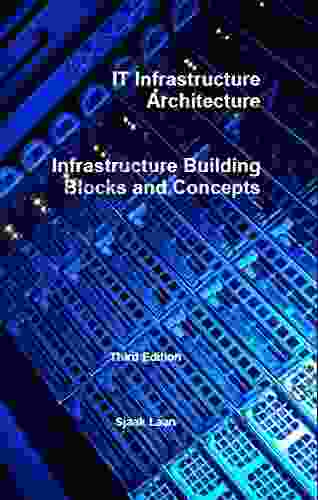
 David MitchellIT Infrastructure Architecture: Infrastructure Building Blocks and Concepts
David MitchellIT Infrastructure Architecture: Infrastructure Building Blocks and Concepts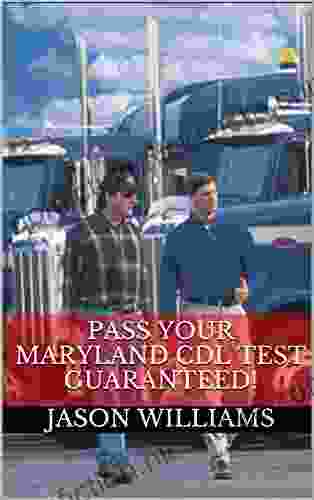
 Ethan GrayPass Your Maryland CDL Test Guaranteed: Master the 100 Most Common Commercial...
Ethan GrayPass Your Maryland CDL Test Guaranteed: Master the 100 Most Common Commercial...
 Dylan MitchellCrack the AP Physics Exam 2024 Premium Edition: The Ultimate Guide to Physics...
Dylan MitchellCrack the AP Physics Exam 2024 Premium Edition: The Ultimate Guide to Physics... Jeremy CookFollow ·13.1k
Jeremy CookFollow ·13.1k Terry PratchettFollow ·5.1k
Terry PratchettFollow ·5.1k Al FosterFollow ·13.9k
Al FosterFollow ·13.9k Colton CarterFollow ·19.3k
Colton CarterFollow ·19.3k Geoffrey BlairFollow ·10.7k
Geoffrey BlairFollow ·10.7k Calvin FisherFollow ·7.3k
Calvin FisherFollow ·7.3k Hugh ReedFollow ·7.7k
Hugh ReedFollow ·7.7k Darrell PowellFollow ·3.5k
Darrell PowellFollow ·3.5k

 Jarrett Blair
Jarrett BlairThe Science Of Horror: Unmasking the Neuroscience Behind...
Horror, a genre that...

 Braden Ward
Braden WardIce Cream with Daddy: A Sweet and Savory Summer Memory
Ice cream with daddy...
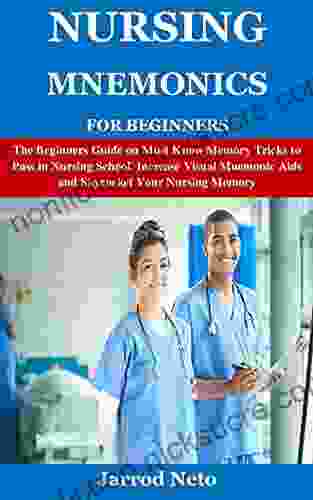
 Daniel Knight
Daniel KnightThe Beginner's Guide to Must-Know Memory Tricks to Pass...
Are you a nursing...
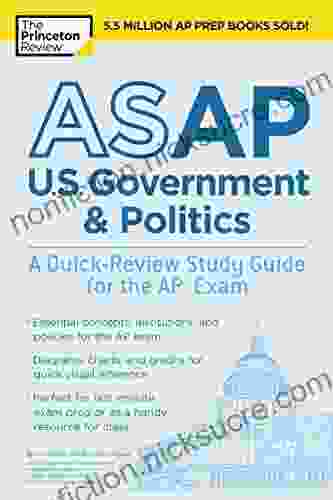
 Kazuo Ishiguro
Kazuo IshiguroASAP Government Politics: A Comprehensive Analysis of Its...
In recent years, there has...
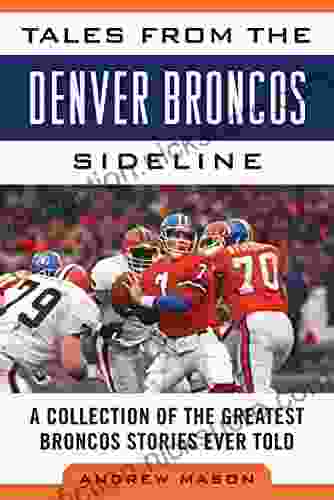
 Neal Ward
Neal WardTales From The Denver Broncos Sideline: An Unforgettable...
The Broncos' Unwavering Spirit The...
5 out of 5
| Language | : | English |
| File size | : | 7317 KB |
| Text-to-Speech | : | Enabled |
| Screen Reader | : | Supported |
| Enhanced typesetting | : | Enabled |
| Word Wise | : | Enabled |
| Print length | : | 172 pages |



